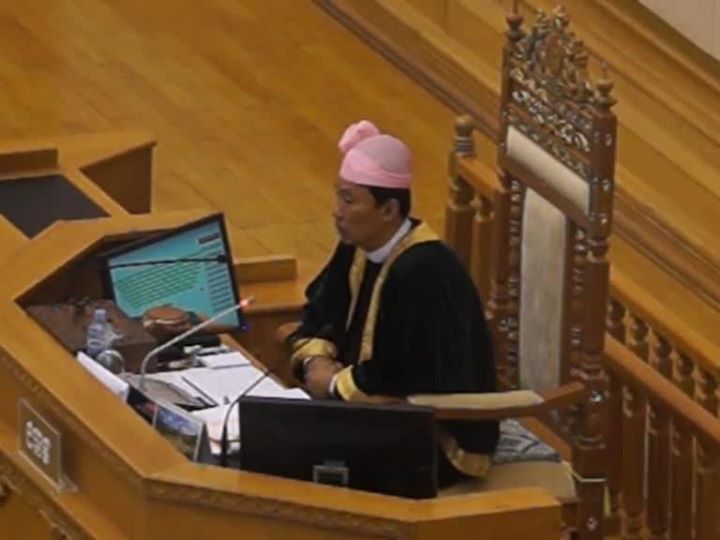Burma’s Parliamentary Speaker Shwe Mann urged relevant ministries to draft laws protecting national race and religion during Thursday’s assembly.
The recommendation follows a message from President Thein Sein recommending legislative action on a petition he received in July 2013 from the Organisation for Protection of National Race and Religion (OPNRR), headed by Ashin Tilawka Biwuntha (also known as Tiloka Bhivamsa), member of the government appointed National Head Monks Committee.
Upon Thein Sein’s receipt of the petition, which was forwarded to the Speaker, 1.3 million people had signed in favour of creating legislation to protect national race and religion. Since that time, the OPNRR said that they have gathered nearly three million additional supporters.
In his message to the Speaker, Thein Sein declared that as the 2008 Constitution contained no provisions to govern “much delicate religious issues”, oversight should defer to the Parliament.
[related]
The OPNRR independently drafted four laws: the Faith Conversion Bill; the Marriage Bill; the Monogamy Bill; and the Population Control Bill. The group urged that the drafts, which have been handed over to relevant governing bodies, be submitted to Parliament “in any way possible” to “resolve racial inequality” and to preserve the “national race” and Buddhist religion.
Pe Than, a member of Burma’s Parliament, explained that, “The Speaker urged concerned government bodies to see to proposing the bills, for example, the Religious Ministry for the Religion Conversion Bill; the Supreme Court for the Monogamy Bill; and the Immigration Ministry for the Population Control Bill, in coordination with the Foreign Ministry and the National Human Rights Commission.”
Ashin Parmouhka, a member of OPNRR, claims that the laws are necessary to prevent further racial and religious violence in the country, which since 2012 has suffered several bouts of deadly communal violence between Buddhists and Muslims that overwhelmingly affected the latter.
“If you want to see peace and an end to religious and racial conflict in Burma, these laws must be adopted,” he said. “If you want more conflicts and unrest in the country, then don’t adopt the laws.”
Critics of the push for racial and religious protection laws say that not only are they exclusionary and divisive, but the proposal could be damaging to women’s rights, as they contain provisions that heavily restrict freedoms of marriage and childbearing.
“I see the decision… as a violation of women’s rights and also freedom of faith,” said renowned writer and dissident Htet Myat. “I don’t see any alarming threats to religion and disorderly behaviour by women that would warrant these laws.”
Though the proposal was originally submitted to Thein Sein in July of last year, it has just now entered into parliamentary discourse.
On Tuesday news of leaked official documents buttressed claims by international rights bodies that Burma has enforced orders so restrictive to the basic rights of minorities – namely Rohingya Muslims – as to implicate the government in crimes against humanity.



